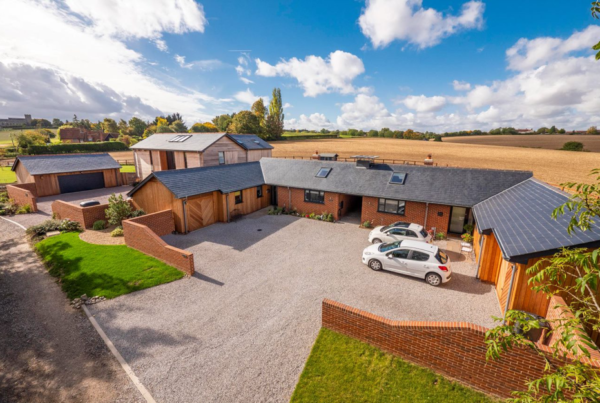It is highly recommended that you have unoccupied buildings insurance in place, and you may also be required to take out a JCT contract (non-negligence insurance) as well as a contractor all-risk policy if developing a property.
As property development finance experts, we will explain these insurance products in further detail in the rest of this guide, to provide you with in-depth information so you can make an informed decision.
Unoccupied buildings insurance
If developing a property that is completely unoccupied, you will need unoccupied buildings insurance. Typically, there will be three levels of cover to choose from. Pick carefully the level of cover to ensure you are fully insured in the event something goes wrong.
- Level one: this level of cover for unoccupied buildings insurance means that it will only pay out for FLEEA. This stands for Fire, Lightning, Earthquake, Explosion and Aircraft damage only. That means if the property development experiences flood or malicious damage, you will not be able to recuperate costs.
- Level two: an insurer will cover you for theft, malicious damage, water damage with this insurance policy.
- Level three: the highest level of unoccupied buildings insurance cover will provide full peril cover should something go wrong during property development.
Make sure you inform your insurer about renovations
When insuring an unoccupied property, inform the insurer when applying that you will be renovating the building. Some insurers will not necessarily make a pay out for major refurbishments if a claim was made or they may decide to implement a cover cap on renovations they would pay out for.
Contractors all risk insurance
If you are the property developer you should also take out contractors all-risk insurance, in order to make sure you are protected against other contractors also working for you.
The main reason for doing this is because you may not necessarily receive adequate cover from the contractors’ insurance policies. In the worst-case scenario, that means you would end up having to pay out for damage caused, out of your own pocket.
By not having this insurance policy in place, you could be putting your property investment at risk.
JCT Insurance 21. 2.1
Also known as Non-Negligence Insurance, it is in place in order to protect the employer (this being the property developer).
This type of insurance will protect the employer against any unforeseen damage to third-party properties, which have resulted due to property development works on your site by a contractor or sub-contractor.
The damage this insurance policy refers to includes things such as lowering of groundwater, vibration, heave or subsidence.
Keep in mind that if you don’t have this insurance policy in place, you could end up having to cover the cost of a claim.








